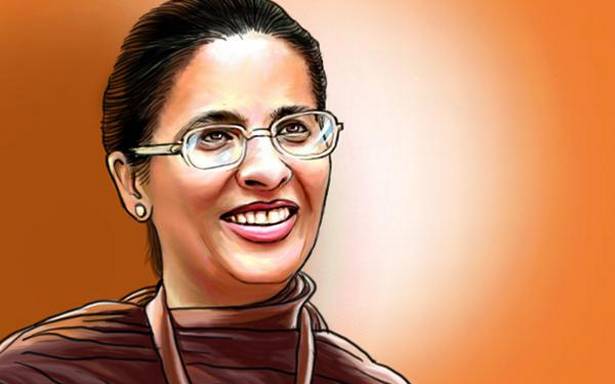Justice Malik was appointed as a judge of the Lahore High Court in March 2012. She will now work as a Supreme Court judge until her superannuation in June 2031
Justice Ayesha Malik on Monday took oath as the first woman judge of Pakistan’s Supreme Court, in what can be described as a watershed moment in the judicial history of the conservative Muslim-majority country.
Chief Justice Gulzar Ahmed administered the oath to 55-year-old Justice Malik in a ceremony held at the ceremonial hall of the Supreme Court, which was attended by a large number of apex court judges, the attorney general, lawyers, officials of the Law and Justice Commission and others.
Talking to reporters after the ceremony, Chief Justice Ahmed said that Justice Malik was competent enough to become a Supreme Court judge and that no one deserves any credit for her elevation.
Profile | Ayesha Malik
Information Minister Fawad Chaudhry congratulated Justice Malik on her "landmark elevation." "A powerful picture symbolises women empowerment in Pakistan,” Mr Fawad tweeted alongside the picture of the oath-taking ceremony, adding that he hopes Justice Ayesha will be an asset to the country’s “judicial hierarchy”.
Eyebrows were raised when Justice Malik was picked for the top slot despite being fourth on the seniority list of judges of the Lahore High Court. Her nomination was rejected last year by the Judicial Commission of Pakistan (JCP).
But the commission earlier this month approved her with a narrow majority of five to four when her name was brought up for the second time for consideration. Reportedly heated discussions preceded the nomination session which lasted nearly three-and-a-half hours.
Chief Justice Ahmed was chairing the meeting of the JCP, the top body which nominated the judges for the top judiciary.
After the JCP, her name came up for the approval of the bipartisan Parliamentary Committee on the Appointment of Superior Judiciary which approved the nomination.
The committee while approving her nomination created an exception by setting aside the seniority principle because Justice Malik, who was on the fourth position on the seniority list of the judges of the Lahore High Court, would be the first woman top judge.
Normally, the seniority of high courts judges is considered while approving their elevation to the Supreme Court and it was precisely the reason her name was rejected by the JCP last year.
On Friday, the Ministry of Law had issued a notification saying Justice Malik’s elevation has been approved by President Arif Alvi.
Justice Malik was appointed as a judge of the Lahore High Court in March 2012. She will now work as a Supreme Court judge until her superannuation in June 2031.
She will also be the senior most serving judge and likely to become the Chief Justice of Pakistan in January 2030. In that scenario, she would again create history by becoming the first woman chief justice of Pakistan.
The chief justice of the Supreme Court is appointed on the basis of their seniority of service in the apex court.
Born in 1966, Malik completed her basic education from schools in Paris, New York, and Karachi, according to the Lahore High Court’s website.
She studied law at Pakistan College of Law, Lahore and did her LLM from Harvard Law School, according to the Lahore High Court website.
She gave her landmark judgment back in June 2021 when she had declared virginity tests for examination of sexual assault survivors “illegal and against the Constitution of Pakistan."
Source: Read Full Article

